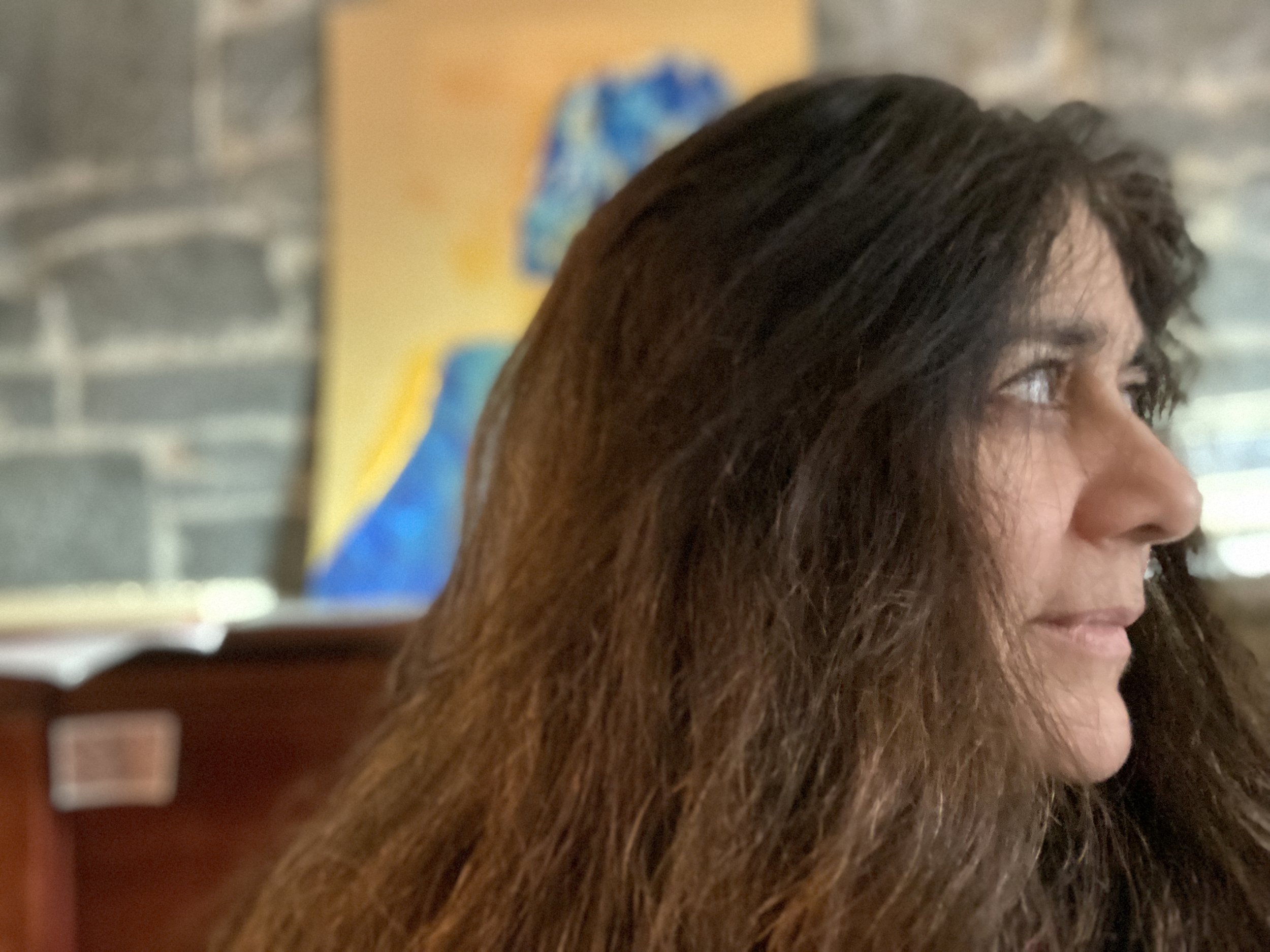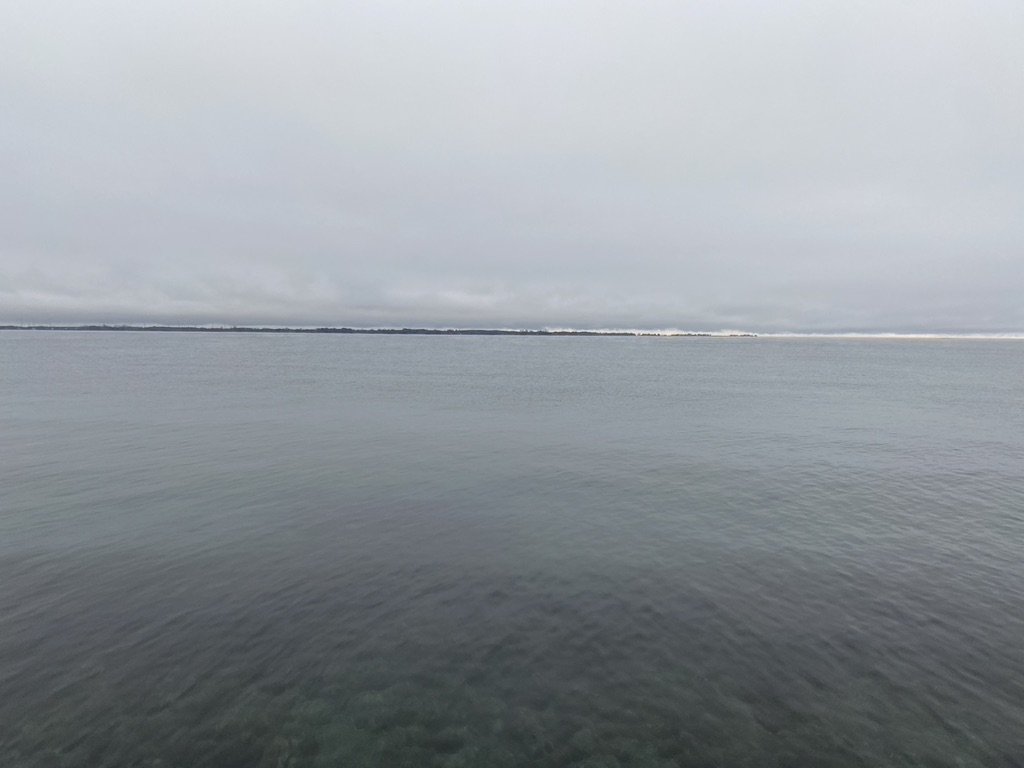The Caledonias
FOR IMMEDIATE RELEASE: ARUNA WITH MICHAEL BROADHEAD & THE CALEDONIAS PERFORM HAVE YOU SEEN MY SISTER? AT KINGSTON CITY HALL, MONDAY MARCH 4, 2024. 7:30PM (DOORS 7PM) FREE ADMISSION. ALL WELCOME.
A special performance of the song suite, Have You Seen My Sister?, focusing on regional victims of gender-based violence, will take place at Memorial Hall, Kingston City Hall, on Monday March 4, 2024. The performance, which is free of charge, will feature Kingston based musicians, including the suite's composer, ARUNA, the vocal ensemble the Caledonias, and on upright bass, Michael Broadhead. Last fall, the Kingston City Council joined other municipalities in the province in declaring intimate partner violence an epidemic, in a motion proposed by Councillor Wendy Stephen and seconded by Mayor Bryan Paterson.That same week, a recording drawn from the song cycle was nominated Single of the Year for the Canadian Folk Music Awards.
The March 4/24 program includes the five-song suite, “Have You Seen My Sister?”, and two additional pieces, including a première of a song by ARUNA about Métis artist Jaime Black, whose REDress project has been raising awareness about the disproportionate representation of Indigenous and Métis women on Canada's lists of murdered and missing woman. The third piece, Behind the Wall, a song about intimate partner violence composed by American musician Tracy Chapman, will be performed in an arrangement for upright bass and voice. The program lasts under an hour and begins at 7:30pm, with doors open at 7:00pm.
About the artists:
Aruna Antonella Handa, (composer, vocalist) writes about the human condition in the Anthropocene in idioms of art song, folk, theatre, and jazz. She has performed at clubs and festivals in Canada and the US, including Women from Space, Nuit Blanche Toronto, and Canadian Music Week. Her Future Food Salon has toured Toronto, NYC, Austin, and Montreal, with the upcoming series exploring fungi in "Voyage to Anthropocene". A recording in response to the global surge in gender based violence and drawn from her song suite "Have You Seen My Sister?", earned a Canadian Folk Music Awards nomination for Single of the Year (2024). Aruna & the Sirens will release a full length album, "Of Bones & Addicts" this spring. Aruna studied music at McGill University, and in master classes with musicians including Jane Siberry, Sheila Jordan, and Yehudi Menuhin. Aruna's radio columns on future food are syndicated across the country on CBC Radio One.
Michael Broadhead (upright bass) began studying his instrument with Doug Rooks at age 13, performing in orchestras, pit bands, and rock bands while still a teenager. Membership in Kingston, Ontario's 12CAT Arts Collective revealed his interests in booking shows and in organizing within the music community. For three years, he studied jazz at Toronto's Humber College under Neil Swainson and Mike Downes before returning to Kingston where he plays with Dave Barton and Chantal Thompson, and artists including Savannah Shea, Piner, Princess Towers, and Funeral Lakes. The youngest executive of the Musicians union Local 518, Broadhead focusses on musician labour rights.
The Caledonias, established in 2002, are the only all-upper register a cappella group on Queen’s campus. The group consists of 15 female singers who have come together to share their passion for music and connect with other groups on campus and across Ontario. The Caledonias perform at a variety of events throughout the year including performances for charity, Downtown Kingston events, the National Day of Remembrance and Action on Violence Against Women, and a cappella concerts and competitions in association with Queen's university. Members: Members include: Hanna Harper, Alesha Stevenson, Kira Henders, Carissa Frost, Abiraami Krishnakumar, Olivia Webster, Gwen Kuyt, Ava Blais, Monique Kelly, Belinda Wang, Mabel Hong, Holly Crowson, Fiona Costello, Kayla Mitchell.
Contact: Aruna Antonella Handa 416-606-0799.
Listen to a song from this song cycle: Have You Seen My Sister? Aruna & the Sirens and guests.
Read some background on how this event came together in a piece in an article by Tori Stafford in the Kingstonist
-30-
Lake Ontario, Kingston, Ontario.
FOR IMMEDIATE RELEASE: WEDNESDAY DECEMBER 6, 2023.
I was living in Montreal on December 6th, 1989, a student at McGill University, studying music and philosophy. I remember hearing that something, a shooting, was taking place, and many of us thought it had to do with student protests, and then slowly the news emerged. I was not studying engineering, like my father and my brother had. As such, I was not a threat to the young man who screamed out “you’re all feminists” as he gunned down the female students in an engineering class, having separated them from their male counterparts before firing. He murdered 14 women that evening, and his suicide note confirmed that he blamed women for the defects of his life, including being denied a place at the Ecole Polytechnique, because he was short a prerequisite. He had gunned down the women to punish them for, in his mind, having taken his place in the engineering program.
This morning, in the kitchen of my beautiful new home in Kingston, Ontario, as I gazed out at the freshly fallen snow covering the garden, I made my morning coffee and listened to last night’s BBC news broadcast. I was jolted out of my morning reverie by the eye-witness testimony given about rape and mutilation of women in the October 7th attack on Israel. These gut-wrenching accounts delivered by actors, and edited for the radio, still managed to shock and sicken me. They brought tears to my eyes. The horrific treatments that some men in war reserve for women reminded me in a visceral way that our work is not nearly anywhere done.
’Femicide’ is a term coming into use to describe murdering women, girls or gender-diverse people precisely because they are women, girls or gender-diverse people. The Montreal Massacre murders were femicides. In fact, OAITH, which tracks femicides in Ontario, reports that the term ‘femicide’ was first coined in 1976 to capture the gender dimension in many murderous acts of women, a dimension missed by the term “homicide”. This day, the anniversary of the Montreal Massacre, is called a day of remembrance and action. I know many reading this work tirelessly to end gender-based violence. Thank you. In case that’s not you, please join me, if you are able, in a private pledge to do at least one action this year, one thing to attempt to combat femicide, to combat violence against women, girls and gender-diverse people. One act.
PRESS RELEASE: For Immediate Release Wednesday October 18, 2023. Kingston, Ontario.
ARUNA & THE SIRENS PICK UP SINGLE OF THE YEAR NOMINATION FOR “HAVE YOU SEEN MY SISTER?”
The single ‘Have You Seen My Sister?’ released by Aruna & the Sirens and guests in February 2023 has been nominated for a Canadian Folk Music Award in the category of Best Single of the Year. The awards ceremony will take place in St. John’s Newfoundland in early April 2024.
Aruna & the Sirens is an Ontario-based band that has been performing in the GTA since 2018. In addition to Aruna Antonella Handa who sings lead and wrote the piece, band members include: Chris Adriaanse, Alejandra Ballon, Caitlin Holland, Lindsay McDonald, and Raphael Roter. Guest musicians on the track include Doug Tielli (Owen Sound), Dave Eggar (Bristol, Tennesse), Antje Duvekot (Boston). The artwork was created by Victor Klassen (Valle de Bravo, Mexico). A full list of all the contributors, and funders is available on the project webpages here and on the song’s Bandcamp page.
The single was drawn from a song cycle composed in 2017 to draw attention to gender-based violence. Early in the COVID pandemic, the UN reported a global surge in domestic violence and gender-based violence, and Aruna contacted producer David Seitz (New York City) and the pair decided to release a single. Aruna’s band recorded guide tracks at Toronto’s Canterbury studio with engineer Jeremy Darby, and then invited musicians in Canada and the US to add tracks, recorded remotely in isolation due to lockdown.
Aruna and the Sirens and their producer David Seitz want to thank the talented musicians, artists, engineers and supporters of the project. They would also like to thank the radio stations, broadcast, print and media outlets who have written about the project, and played the single. Tour planning is underway and the band is especially interested in co-presenting the song cycle with local music ensembles. For more information or to request a tour date, please contact touring@haveyouseenmysister.ca.
Aruna & the Sirens will release a new single in January and a full LP this coming February.
CONTACT: Aruna Antonella Handa 416-606-0799
The full roster of the Canadian Folk Music nominations and a video of the announcement of nominees is available here: https://folkawards.ca/nominees/
-30-




